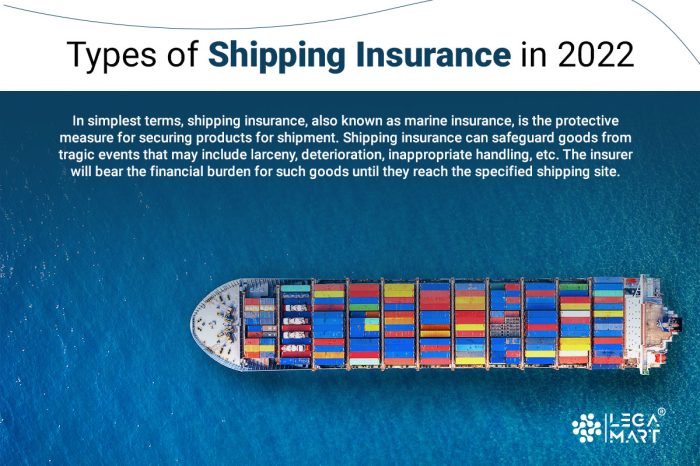Enforcement of a ship mortgage
Enforcing a ship mortgage can be a complex process that is subject to a variety of legal issues. A ship mortgage is a security interest in a vessel that is used to secure a loan or other financial obligation. In the event of default, the lender may seek to enforce the mortgage and seize the vessel. However, this process can be complicated by a variety of factors, including the location of the vessel, the applicable laws and regulations, and the interests of other stakeholders. It is important for lenders and other parties involved in ship mortgages to seek legal advice from experienced international lawyers who can help guide them through the process and ensure that all legal requirements are met.
Find best lawyers for Enforcement of a ship mortgage
Issues related to Enforcement of a ship mortgage
A ship mortgage is a type of secured loan that uses a ship as collateral. The main benefit of a ship mortgage is that it can provide lenders with a high level of security, making it easier to get approved for the loan and better terms.
However, there are also some risks attached to ship mortgages. For example, if the borrower defaults on the loan, the lender may be able to seize the vessel and sell it to recoup its losses. Additionally, if the vessel’s value decreases significantly, the lender may be left with a loss.
Overall, ship mortgages can benefit both borrowers and lenders, but it’s essential to understand the risks involved before entering this type.
When a ship is mortgaged, the mortgagee (lender) has certain rights and remedies if the borrower defaults on the loan. The most common remedy is accelerator clauses, which allow the mortgagee to demand full debt payment if certain conditions are met, such as default payments or failure to keep up with repairs. In some cases, the mortgagee may also have the right to take possession of the vessel.
It should be noted that enforcement of a ship mortgage can be difficult and costly, which is why lenders often require additional security, such as a second mortgage or vessel insurance. Therefore, borrowers should know all the terms and conditions of their loan agreement before signing it. In addition, a ship mortgage is a specifically enforceable security interest in a vessel, giving the lender a priority claim in the event of the borrower’s default.

The first step in foreclosing on a ship mortgage is to have the right to do so. It may be established by language in the mortgage contract or by agreement with the borrower. The boat owner must be in breach of the mortgage agreement. Once these elements are met, the foreclosure process begins. The foreclosure process is generally governed by state law, as federal maritime law does not provide detailed procedures for enforcing mortgages.
A few conditions must be met for a ship mortgage to be enforceable. First, the mortgage must be in writing and signed by the borrower. Second, the mortgage must be registered with maritime authorities in the country where the ship is registered. Third, the ship must be adequately insured so the lender can recoup its investment if the vessel is damaged or destroyed. Finally, the ship should have a fair market value to serve as adequate collateral for the loan. If all of these conditions are met, then enforcement of a ship mortgage should not pose any significant problem.
Latest Articles
Tell us more about your problem.
Please give a brief description about what it is you need to talk to our lawyers about ?
Frequently Asked Questions
How does the enforcement of a ship mortgage work in the United Kingdom and China?
The enforcement of a ship mortgage in the United Kingdom and China differs slightly due to their legal systems. In general, the process for enforcing a ship mortgage is as follows:
United Kingdom:
- The mortgagee (lender) can apply to the court for an order of sale of the vessel.
- If the court grants the order, the vessel will be sold at auction, and the proceeds will be used to pay off the outstanding mortgage debt.
- If there are any remaining funds after the mortgage has been paid off, they will be distributed among other creditors.
China:
- The mortgagee can apply to the People’s Court for an order of auction of the vessel.
- If the court grants the order, the vessel will be sold at auction, and the proceeds will be used to pay off the outstanding mortgage debt.
- If there are any remaining funds after the mortgage has been paid off, they will be distributed among other creditors.
- If the proceeds of the sale are not sufficient to pay off the mortgage debt, the mortgagee can apply to the court for a deficiency judgment against the owner or other liable parties.
In both the UK and China, the mortgagee must follow the legal procedures for enforcement carefully to ensure that it is done correctly and legally. It is important to seek legal advice from professionals who have experience in maritime law to navigate the legal requirements and protect your interests.
What are the legal requirements for enforcing a ship mortgage in these countries?
The legal requirements for enforcing a ship mortgage in the United Kingdom and China are as follows:
United Kingdom:
- The mortgage must be registered with the UK Ship Register or a recognized international register.
- The mortgage must be properly executed and contain all necessary information, including the names of the parties, the amount of the mortgage debt, and the terms of repayment.
- The mortgagee must have possession of the mortgage document or a certified copy.
- The mortgagee must apply to the court for an order of sale of the vessel and follow the legal procedures for enforcement carefully.
China:
- The mortgage must be registered with the China Maritime Court or a recognized international register.
- The mortgage must be properly executed and contain all necessary information, including the names of the parties, the amount of the mortgage debt, and the terms of repayment.
- The mortgagee must have possession of the mortgage document or a certified copy.
- The mortgagee must apply to the People’s Court for an order of auction of the vessel and follow the legal procedures for enforcement carefully.
In both countries, it is important to comply with all relevant laws and regulations regarding ship mortgages and maritime law to ensure that the enforcement is done correctly and legally. It is recommended to work with experienced professionals who can provide guidance on the legal requirements and help navigate any potential legal issues.
What are some common issues that arise in ship mortgage enforcement, and how can they be addressed?
Ship mortgage enforcement can be complex, and several common issues can arise during the process. Some of these issues include:
Priority: If there are multiple mortgages on the vessel, determining priority between them can be a challenge. This issue can be addressed by ensuring that all mortgages are properly registered and recorded, and by seeking legal advice to navigate any priority disputes.
Deficiency judgments: If the proceeds from the sale of the vessel are not enough to cover the outstanding mortgage debt, the mortgagee may seek a deficiency judgment against the owner or other liable parties. This issue can be addressed by carefully reviewing the terms of the mortgage agreement and seeking legal advice to determine the available remedies.
Jurisdiction: If the vessel is located in a different jurisdiction than where the mortgage was granted, enforcing the mortgage can be challenging. This issue can be addressed by carefully reviewing the legal requirements for enforcing ship mortgages in the relevant jurisdictions and seeking legal advice to ensure compliance with all applicable laws and regulations.
Sale price: The sale price of the vessel may be lower than expected, leading to insufficient funds to pay off the outstanding mortgage debt. This issue can be addressed by conducting a thorough market analysis and setting realistic expectations for the sale price of the vessel.
Liens and encumbrances: If there are liens or other encumbrances on the vessel, they may affect the ability to enforce the ship mortgage. This issue can be addressed by conducting a thorough due diligence review of the vessel’s title and ensuring that any liens or encumbrances are addressed before proceeding with mortgage enforcement.
To address these issues, it is important to work with experienced professionals who have knowledge of maritime law and ship mortgage enforcement. By carefully reviewing the legal requirements and addressing any potential issues upfront, businesses can minimize the risk of legal disputes and ensure a successful ship mortgage enforcement process.











